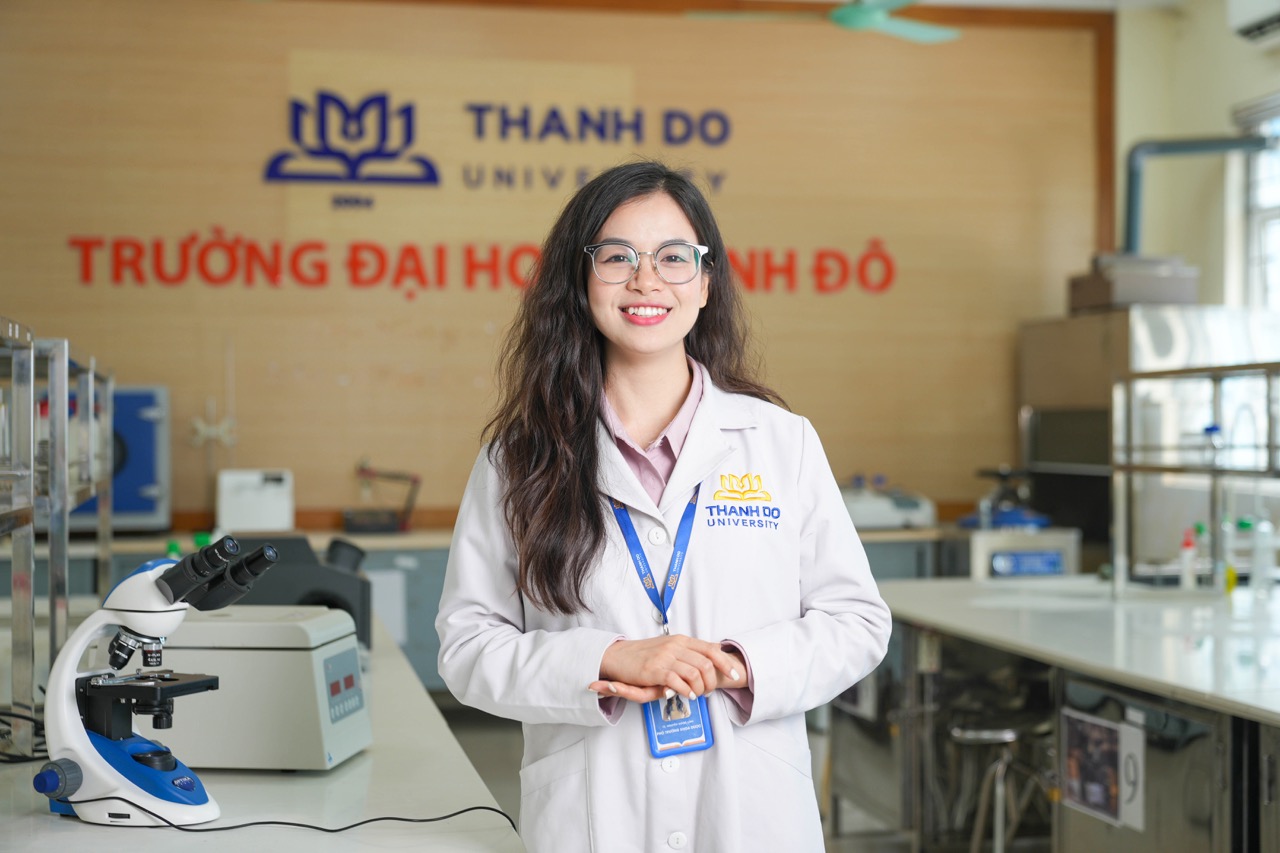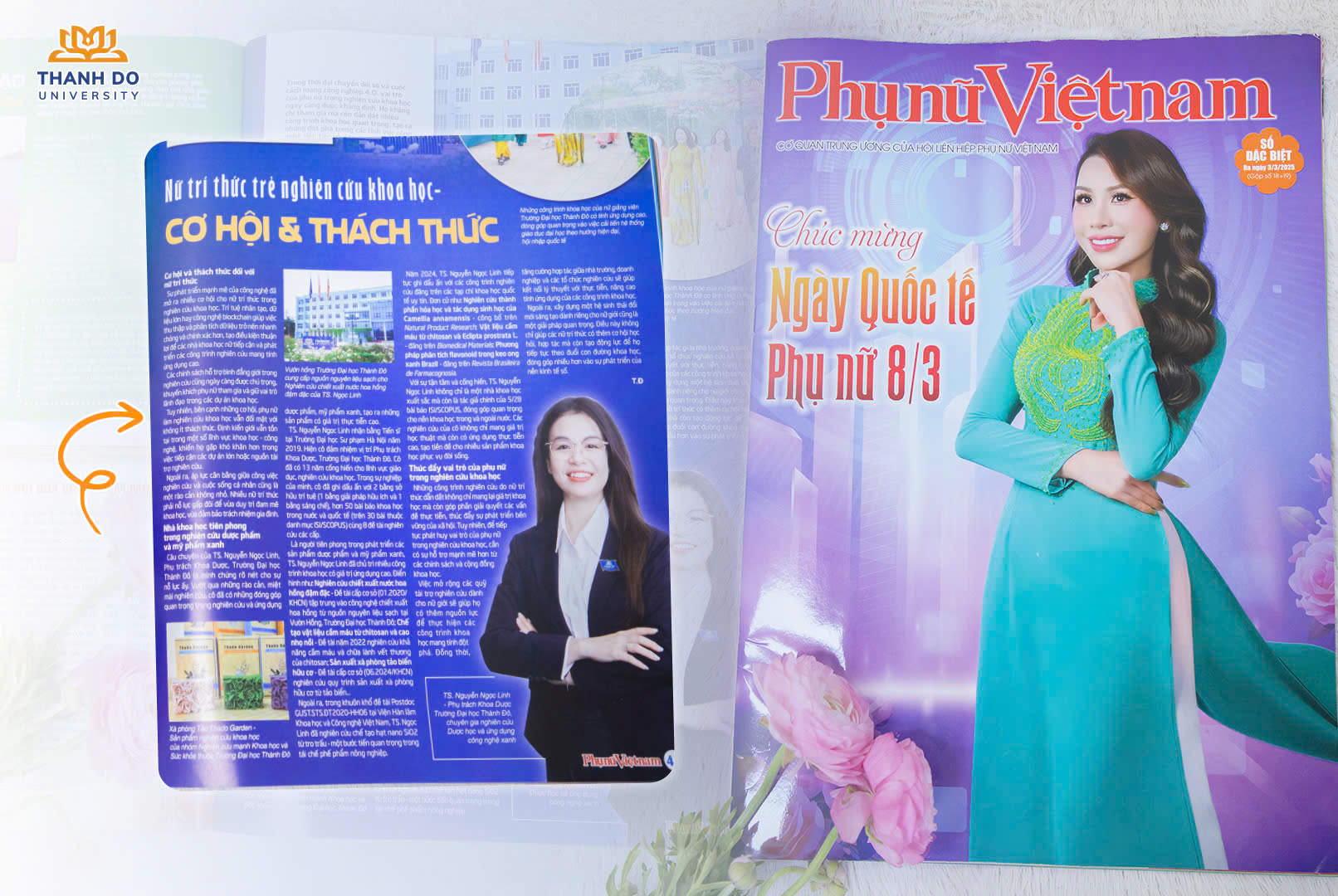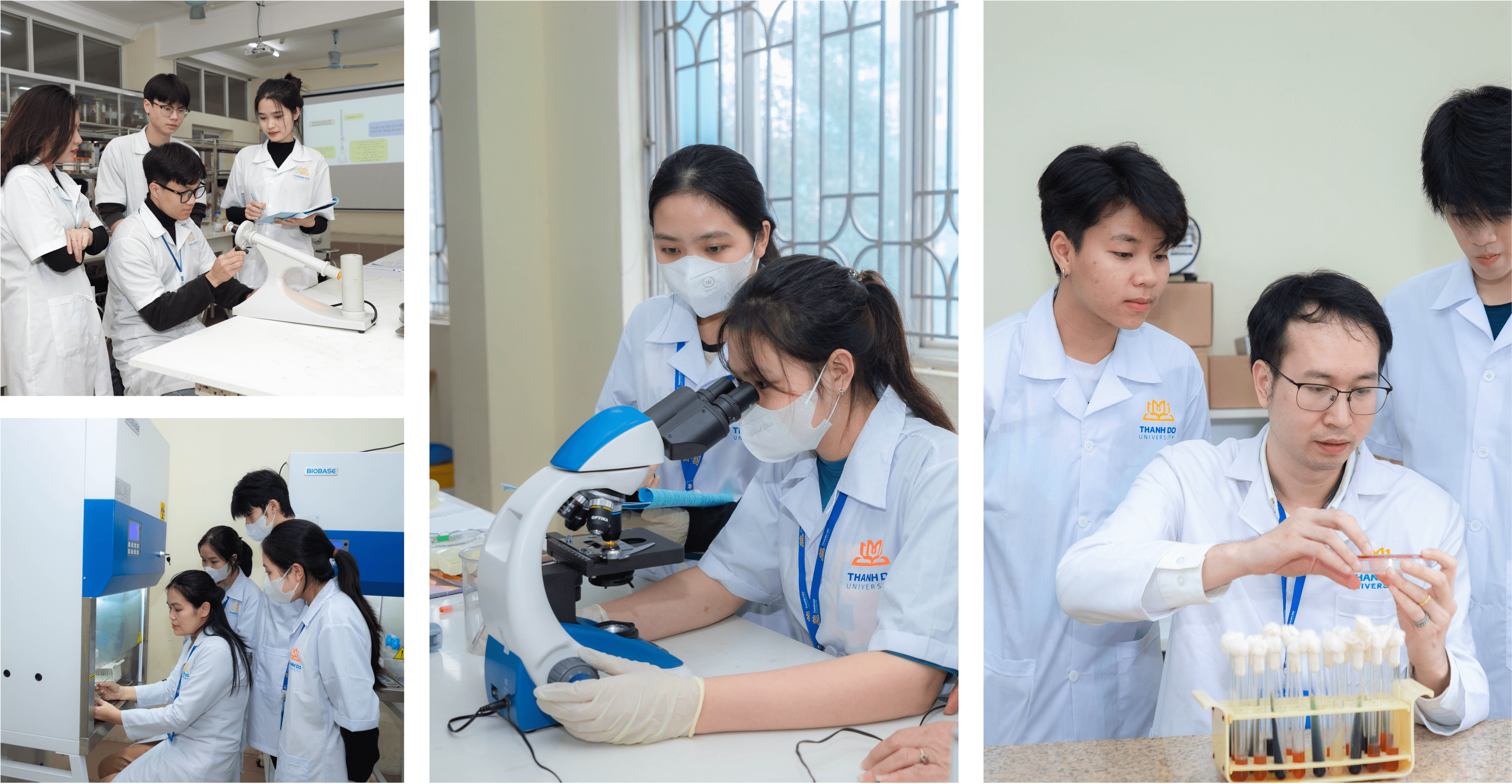


09/04/2025



In the era of technology and digital transformation, women are not only participating but also leading groundbreaking scientific projects in fields such as AI, blockchain, digital finance, and green economy. These studies hold academic value while also contributing to innovation and sustainable development.
However, to establish themselves, young female intellectuals face numerous challenges, including gender biases in certain scientific and technological fields, difficulties in accessing research funding, and the pressure of balancing work and personal life.
Dr. Nguyễn Ngọc Linh – Head of the Faculty of Pharmacy at Thành Đô University, a distinguished lecturer and researcher, is a testament to perseverance in overcoming barriers to contribute to science. With over 50 international scientific publications, two intellectual property patents, and a series of highly applicable research projects, she has helped create sustainable products with real-world value, such as:
🧴 Organic algae soap – A green product for community health
🌿 Research on concentrated rose water extraction – Utilizing natural resources
🩸 Hemostatic material from chitosan and Eclipta prostrata – Modern medical applications

| Dr. Nguyễn Ngọc Linh earned her Ph.D. from the University of Education and currently serves as the Head of the Faculty of Pharmacy at Thành Đô University.
With 13 years of dedication to education and scientific research, she has made significant contributions, including:
|
Thanks to her meaningful contributions to science, she was honored in the special issue of Vietnamese Women’s Newspaper celebrating International Women’s Day on March 8—a well-deserved recognition for her relentless efforts.

Scientific projects led by female intellectuals not only contribute valuable academic insights but also address real-world challenges, promoting sustainable societal development. However, to further enhance the role of women in scientific research, stronger support from policies and the scientific community is essential. The article also highlights: “Expanding research funding for women will provide them with additional resources to undertake groundbreaking scientific projects. At the same time, strengthening collaboration between universities, businesses, and research organizations will bridge the gap between theory and practice, enhancing the applicability of scientific research.”
Over two decades of establishment and growth, Thanh Đo University has gradually affirmed its position as one of Vietnam’s leading private universities. Guided by the educational philosophy “Wisdom – Competence – Humanity – Harmony,” the university is committed not only to academic excellence but also to creating a learning environment closely linked to real-world demands, ensuring responsiveness to societal needs in the context of global integration.
The university actively invests in and promotes research activities. Many research projects led by faculty and students receive strong support from the Institute for Educational Research and Knowledge Transfer (REK) and benefit from strategic collaborations with businesses and organizations. These efforts drive the applicability and real-world impact of research achievements across various fields.
As part of its internationalization strategy, Thanh Đo University extends its educational reach beyond Vietnam. The university has joined Open Education Global (OE Global), a non-profit international organization, reaffirming its commitment to providing open education for students worldwide. Additionally, the university has achieved significant ranking improvements in Webometrics.
Thanh Đo University is also a pioneering institution in open education projects. It is Vietnam’s official member of EASE (the European Association of Science Editors), established in France in 1982, allowing access to copyrighted scientific resources for free.

Thành Đô University is actively advancing comprehensive digital transformation in management, teaching, research, and learning for both faculty and students. The university has made significant investments in integrated digital learning and management systems. Online administrative tools, digital learning resources, and a supportive e-learning ecosystem have enhanced work efficiency while saving time and costs for students and lecturers. Additionally, the university has introduced innovative teaching models, such as blended learning, combining online and in-person classes to ensure flexibility and convenience for learners.
The university has also invested in modern IT infrastructure and launched the “Open Science and Education Library,” which provides access to over 300 open-access textbooks in language studies, social sciences, business, and economics. Readers can freely download or read these materials online.

Thành Đô University takes pride in being a prestigious and high-quality educational institution, making significant contributions to workforce development for economic and social progress. Its alumni are now playing key roles across various industries, driving societal development and spreading the Thadoer spirit throughout the community.